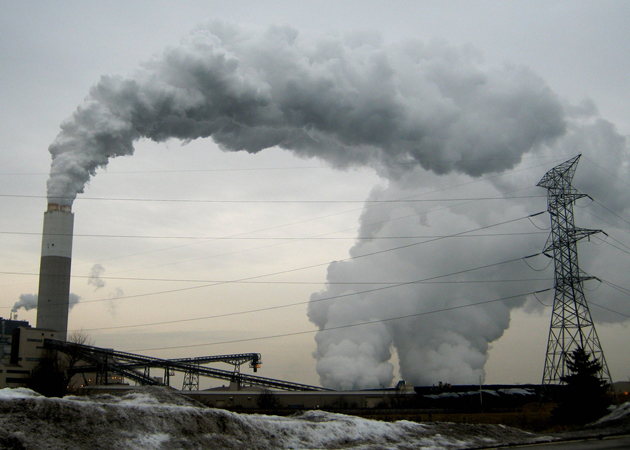
<a href="http://www.flickr.com/photos/ribarnica/6762990509/in/photostream/">ribarnica</a>/Flickr
This post first appeared on the Guardian website.
Greenhouse gas emissions rise when economies expand but don’t fall as quickly when recession strikes, according to new research that emphasises the risks of relying on economic downturns to keep future emissions in check.
The most likely reason is that carbon-emitting vehicles and infrastructure created as the economy grows continue to be used in harder times, even as the economy contracts.
Based on a review of World Bank statistics of more than 150 nations from 1960 to 2008, the research – published in Nature Climate Change on Sunday – found that emissions of carbon dioxide rose by an average of 0.7% for every 1% growth in gross domestic product (GDP) per capita. But emissions fell just 0.43% for every 1% decline in GDP per capita.
The study’s author, Richard York of the University of Oregon, said:
Economic decline … doesn’t lead to as big a decline in emissions as a comparable amount of economic growth leads to growth in emissions. When economies decline, factories don’t shut down immediately, people don’t stop driving (although they may defer buying a new car) and new buildings still needed heating or air-conditioning.
York said that his research suggest that economists may need to rethink how they project future growth of carbon dioxide. Most studies assume that GDP and emissions move in lockstep, both up and down.
He said the findings:
…don’t necessarily suggest future emissions will generally be higher or lower than current projections, but they suggest that this will depend more sensitively on how exactly economies grow (or shrink) … it doesn’t only matter how big GDP is in the future, but also how it gets there, such as by slow steady growth, or by periods of rapid growth mixed with recession.
The UN’s Intergovernmental Panel on Climate Change foresees the world economy expanding steadily to anywhere from $235 trillion to $550 trillion by 2100, up from just $21 trillion in 1990.
It predicts that the associated economic activity would increase emissions sufficiently to raise world temperatures by between 1.1 and 6.4 degrees Celsius, increasing the impact of floods, droughts, heat waves and rising sea levels.









